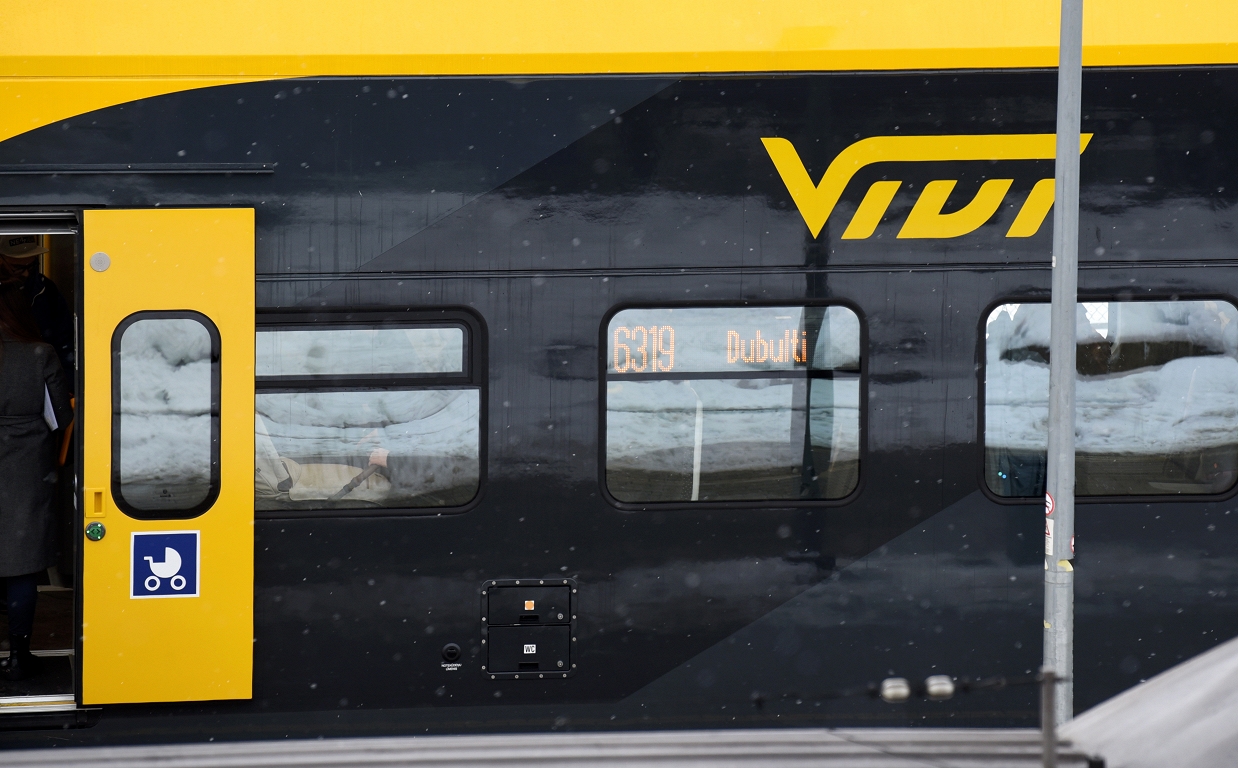In new electric trains so far, about 300 windows have been found to have defects / day

The company explained that in total, all 32 electric trains have nearly 3,000 windows, and about 10%, or more than 300 of them, have been found to be defective – a loss of sealing of windows, which causes sweetheart.
Almost 60% of damaged windows have been replaced, but 134 still have to be replaced. It is planned to replace the remaining defective windows by the end of the summer.
At the same time, PV drew attention to the fact that the detection of defects is a continuous process, thus informing the manufacturer and the replacement is planned. Prevention of defects during the warranty shall be carried out by the manufacturer.
The company also informed that 19 electric trains are currently equipped with cyclists, and it is planned to equip six more by the end of May, while the remaining seven trains are expected to be completed by the end of June.
24 electric trains are assigned on daily flights, so trains that are equipped with cyclists are prioritized on routes. At the same time, passengers can check the information in the PV mobile app before the trip, which shows each flight whether the train is equipped with cyclists, noted the company.
Commenting on the delay in the introduction of cyclists, the company explained that at the beginning of the project the delivery of spare parts by the manufacturer was delayed, and it took extra time for the employees to acquire the necessary skills in the installation work. In order to improve the efficiency of the process, the PV has enhanced the capacity of the repair team by attracting additional staff to the installation of cyclists.
The bicycle turtle installation process also has to be considered with the available capacity of the repaircech. Other regular technical work, such as electric trains and diesel trains, is also carried out with bicycle trains with bicycle trains, overhauls of diesel trains, overhauls of diesel trains, warranty repairs and others, added PV.
It has already been reported that by the end of March this year, four cases of damaging electric trains were also detected, including in three cases, the damage to the pantographs was linked to the technical condition of the contact networks, while in one case the truck crossed the contact network. Pantograph repairs have cost almost EUR 100,000.
In the middle of December 2023, PV began transporting passenger electric trains produced by the Czech company « Škoda Vagonka ». Prior to that, trains were tested for a long time and tested in Latvian railway infrastructure. Nonetheless, the new trains were regularly hit by various stings in December 2023 and January 2024.
The first two new electric train wagons produced by the Czech company « Škoda Vagonka » were transported to Riga in June 2022. At the end of September 2024, all 32 new electric trains produced by the Czech company « Škoda Vagonka » were transported to Latvia.
Each electric train consists of four wagons. One electric train is 109 meters long. Each train has 436 passengers and parking spaces for 454 passengers. Trains include one -level boarding from increased passenger platforms.
The total cost of purchasing new electric trains is EUR 244.846 million, of which EUR 168.191 million is attracted from the European Union Cohesion Funds
The PV was established in 2001, separating the transport of domestic passenger transport from the functions of « Latvijas dzelzceļš ». Previously, the PV was 100% subsidiary of « Latvijas dzelzceļš », but in October 2008 it was transformed into a state -owned company. Last year the company carried 19.44 million passengers.








